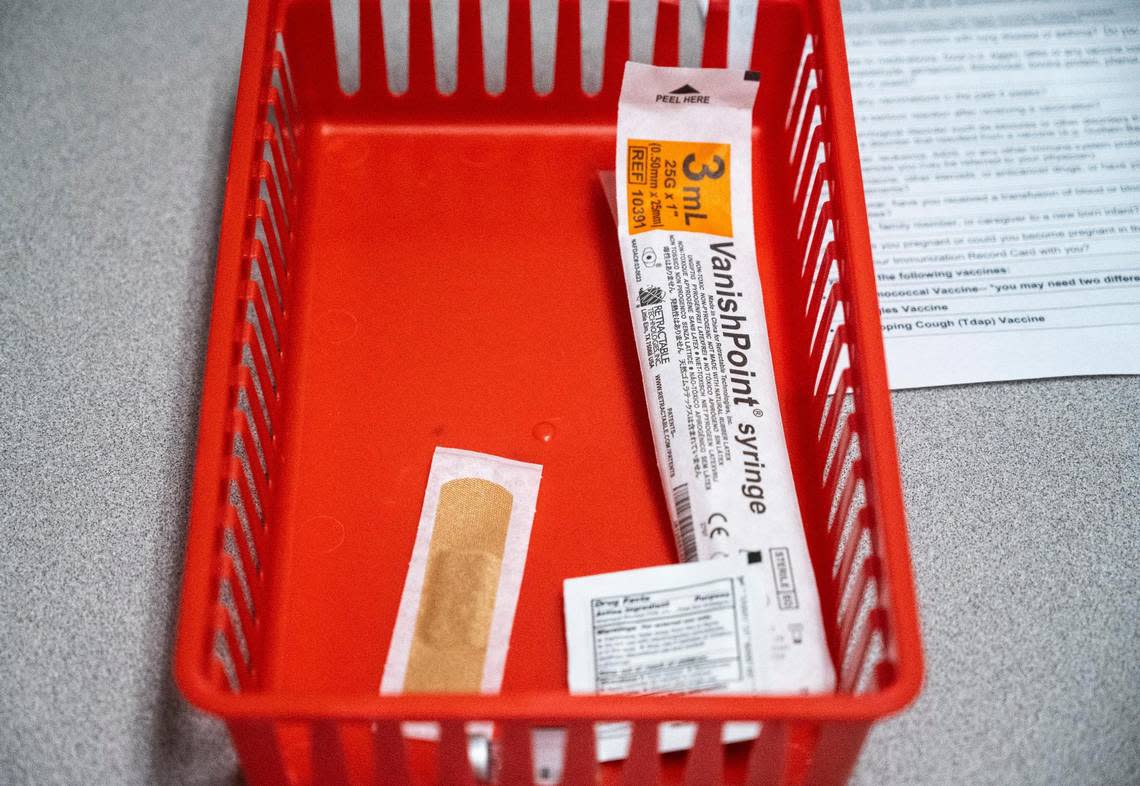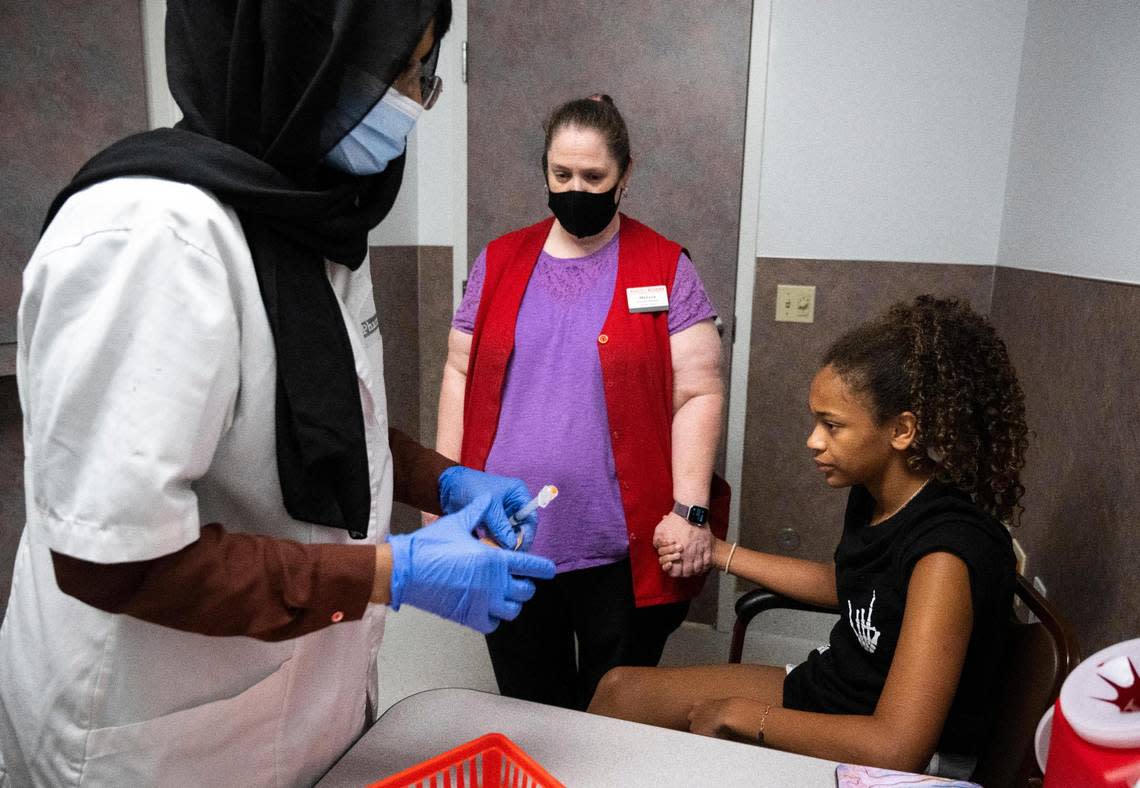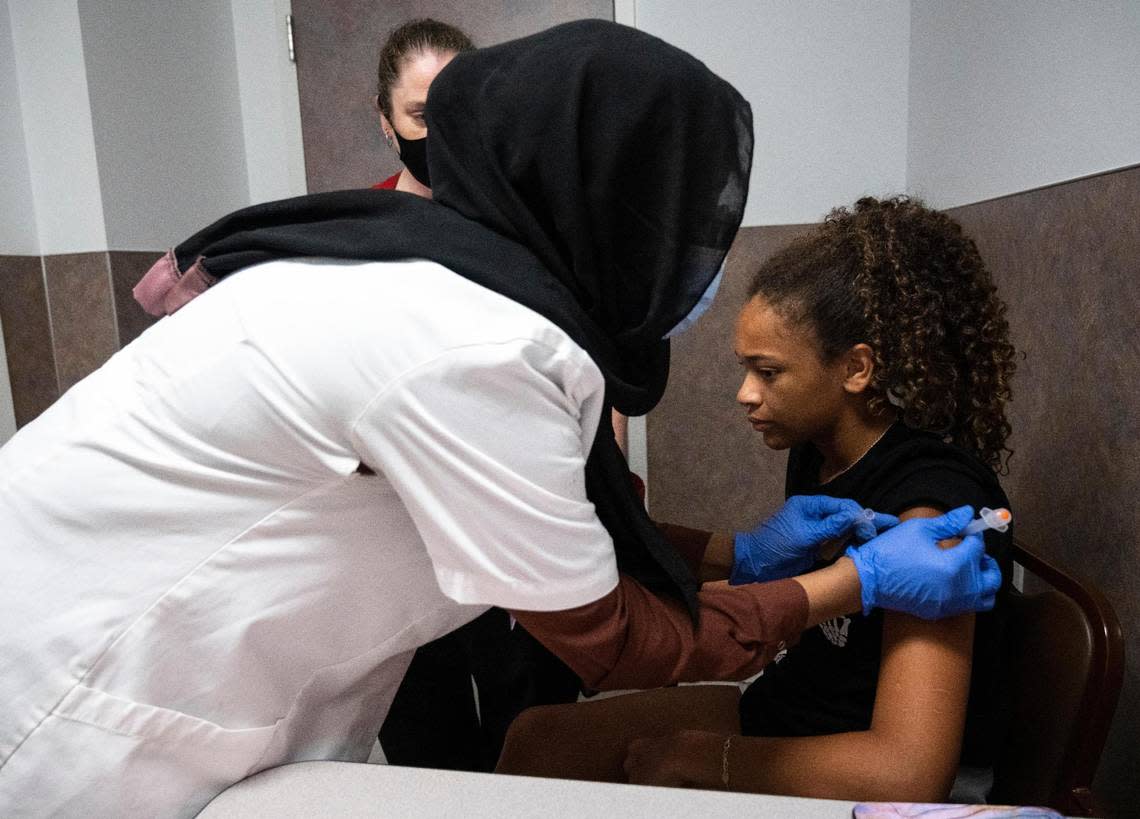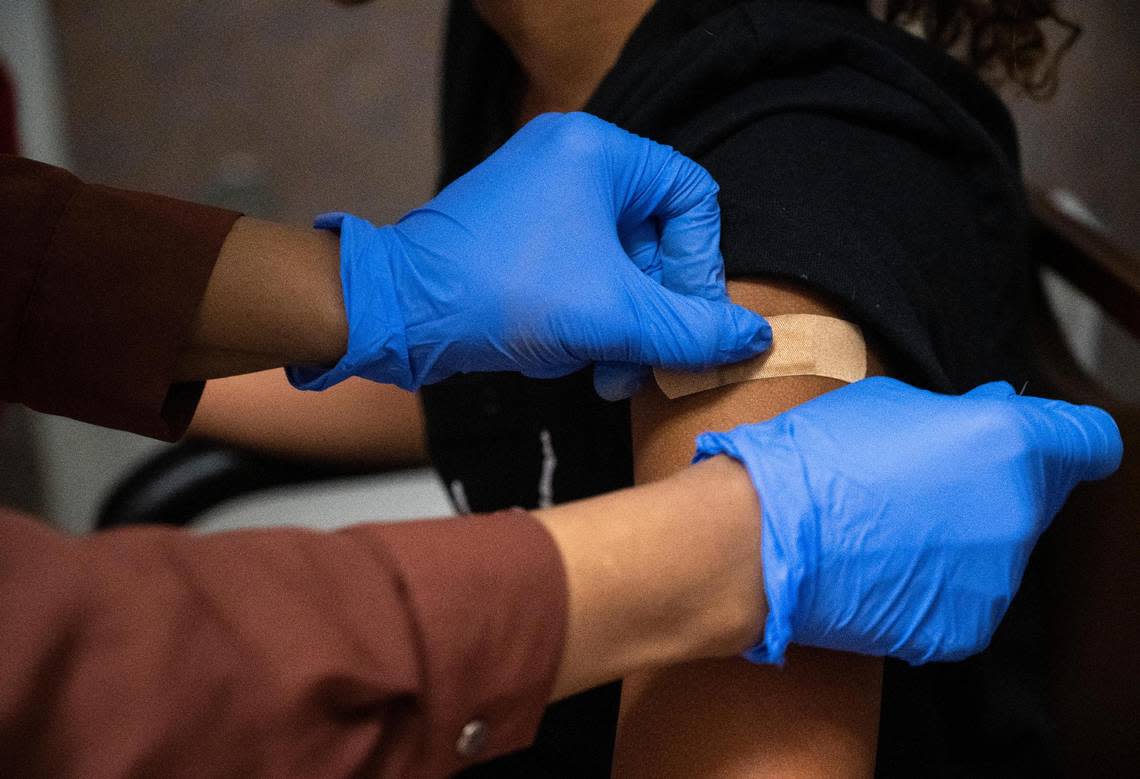Bartell pharmacy leader explains why it’s a good idea to get kids vaccinated for COVID
Pediatric COVID vaccines have been a crucial component of the U.S. pandemic response. While, on average, COVID has had more adverse impacts on adults than children, peer-reviewed evidence reveals that unvaccinated kids can be susceptible to severe disease.
As soon as the FDA approved its first COVID vaccine emergency use authorization in December 2020, health experts and concerned parents began musing about when younger children could receive their shots.
The public received three answers: in May 2021, for children between 12 and 15 years old; in October 2021, for children between 5 and 11 years old; and in June 2022, for children between 6 months and 4 years old. Upon each age groups’ approval, healthcare workers at clinics, hospitals and pharmacies mobilized to put shots in children’s arms.
Uptake of the pediatric vaccines has been mixed. While 60% of U.S. 12 to 17 year olds are fully vaccinated, only 27% of Pierce County 5 to 11 year olds have finished their full treatment (no data is available for the younger group yet). If one defines full vaccination as receiving all eligible booster doses, the numbers become even lower; as of July 9, less than 10% of people in that group have received their CDC-recommended boosters.
Recently, The News Tribune interviewed Ashton Powell, a Bartell Drugs pharmacy leader and the pharamacy manager of the company’s Issaquah location. Powell discussed the role Bartell has played in the Washington state’s pediatric vaccination efforts and what obstacles community pharmacies must address to ensure public safety.
Powell’s answers have been edited for clarity and brevity.

Question: What concerns have you heard from parents when they are thinking about vaccinating their children?
Answer: “Side effects are pretty much the number one question: ‘What can I expect as far as side effects go?’ Other concerns are, ‘When’s my next dose?’, that’s another big one. And, lastly, ‘Is it safe?’ The way I answer that is we’ve almost done, I think the CDC now says over half a billion vaccines vaccines in the United States for COVID, so, it’s been one of the most studied vaccines in the United States’ history at this point, so it’s definitely safe. As far as side effects go, the side effects are very mild ... and rarely ever last more than two to three days as well.”
Q: There is a lot of misinformation out there about COVID-19 vaccines. Has Bartell found that to be a struggle when looking to vaccinate the community? What efforts has the company taken to combat misinformation?
A: “When we first started offering vaccines, I would get calls from people asking, giving me various sources of obviously not correct information. And it was a struggle at first, a lot of people weren’t informed. It was so novel at the time, the vaccine. I feel like now there’s a little less of that going on ... [with] community outreach, it starts at the pharmacy level, the community pharmacy level. You do your best to educate people. A lot of people just came from a place of ignorance; they didn’t have an agenda, they weren’t anti-vax necessarily. They just weren’t informed. So that’s the best thing you can do: inform the public, give them resources.”

Q: People who are in the 65-plus age group have significantly more severe effects from COVID than pediatric patients who have COVID cases. How does Bartell go about stressing that the vaccine is still important to get even when the most deleterious effects don’t happen in the youngest age groups?
A: “That’s a great point. The best thing I can do is give people information. I still get many calls every day asking, ‘Does my kid need his vaccine?’ Most of the time, the answer is yes, unless they’re managing a severe disease state, in which case it means communicate with their specialist. But it’s almost always yes. We go over what the virus can do, and the fact that getting a vaccine can shorten the duration and the severity of COVID.”
Q: Even if the chance of a kid getting severely sick with COVID is lower than other age groups, you still recommend the vaccine? Even with potential side effects?
A: “Yes. The risk of having severe side effects from the vaccine, or even having an effect that’s as bad as COVID, is minimal ... Getting the vaccine doesn’t 100% prevent someone from getting COVID, but it will definitely shorten the duration and the severity. Even though it’s not as severe as someone 65 and older or immunocompromised, you want to make that you’re doing everything you can to protect your child from getting sick, just like we do with the flu vaccine every year before COVID too.”
Q: At the national level, only 30% of 5 to 11 year olds were fully vaccinated as of July 6. What are the challenges of vaccinating that population?
A: “I think that it goes back to education ... This has been an issue with any vaccine going back, especially with the flu. A lot of people if they’re young, they’re healthy, they think they’re low risk. It is true, maybe you’re at low risk of getting it [severely], but it is helpful too to prevent the spread of the virus as well. So that’s another talking point, the less people that are sick, the less people are likely to spread the [virus] ... It comes down to what the parents think. Helping them make an educated decision can sometimes be difficult.”
Q: Do you think there’s more that community pharmacies can do to reach these parents and their children?

A: “Yeah definitely, more can be done. If you have adult patient coming in getting vaccines, you can ask if they have children as well [and] if they want to come in and get the vaccine. Our new scheduler makes it super easy to get signed up as well. During the summertime, hopefully we see these rate of vaccination go up because it’s a little easier to manage a kid’s schedule outside of school. Another issue, too, is no one wants to take their kids to come in and get a vaccine if there’s a fear of needles. We can provide information to the patient’s parents on how to make that easy for them. Because getting a vaccine can be really stressful for a young child.”
Q: How much of a deterrence do you think just the fear of needles is for children getting the vaccine?
A: “A lot. It’s a big experience, so that’s something that we fight every day. I try to be as friendly as possible when kids come in ... If someone asks about bringing their kid in for a vaccination, I give them tips on what to do. If the child’s really young, bring in a blanket or a toy that they really like to keep them distracted. Or if the kid is older, I’ve even seen people load up Netflix on their phone and kind of get to watch it while I’m doing the vaccine ... I understand the stress that goes on, and we try to make it as comfortable as possible for a kid to come in and get a vaccine.”
Q: Expert guidance on vaccines has changed over time, from they will reduce greatly your risk of infection to you might still get infected but the risk of severe of disease will be lessened. What’s been the educational campaign from Bartell to reflect that shift?
A: “That goes back to education as well ... I get this question a lot, ‘I’m traveling or I may be exposed to COVID, is my booster dose going to help?’ I try to use what data I have on hand, the most recent data from the CDC, and say, ‘Hey, you know, right now we have kind of this variant going on in this area. If you plan on traveling there, this is definitely going to help reduce your chance of severe illness.’ The vaccine is not going to prevent you from getting it if you if you keep getting exposed.”
Q: At this point, with this iteration of the vaccine?
A: “Exactly. A lot of people don’t realize that sometimes they’ll think, ‘Oh, I’m getting the vaccine, I’m safe, I don’t have to take precautions.’ But no, you still should definitely [take them]. That’s education that I provide as well when vaccinating patients. If they’re asking about about exposure potential and what that could mean with them getting sick.”

Q: Let’s talk about boosters a little bit. I think that it’s become increasingly hard to figure out what boosters you’re eligible for and which you’re not. How does Bartell manage that?
A: “It is difficult. Having the same vaccine, getting boosters of the same vaccine over and over, it increases the confusion. I’m hoping once there’s new iterations of the vaccine, maybe that will decrease a little bit ... On our website, when you go to schedule the vaccine, it will tell you what age groups are eligible for booster... It is difficult, especially for the layperson, to figure out what dose they need ...The CDC has a great little pamphlet of all the vaccines, how far you need to space them apart, who’s eligible, regular patients, immunocompromised patients, etc. ... “
Q: Do you have any last pieces of information you think are important for people to know?
A: “I think that the general public should stay up to date on current information if possible. Going back to the booster question, you can see how things could change. Going forward, there’s always going to be updates, there’s always going to be changes. To make sure that we get through COVID together, it’s always best to be informed. You can always contact your local pharmacy, your pharmacist, any healthcare provider that you see for information on COVID-19. We’re here to help get through the pandemic, and do whatever we can to help people.”
